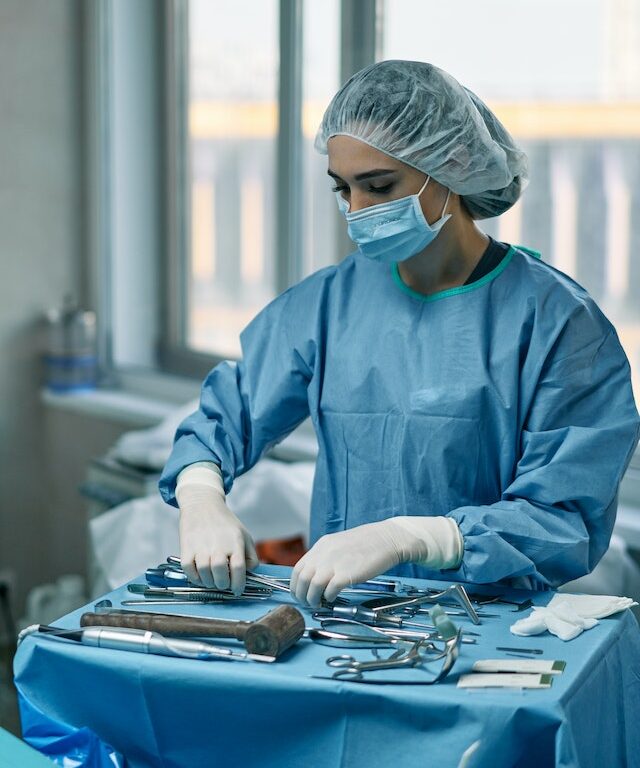
General & Laparoscopic surgery
Our Approach in General & Laparoscopic surgery
The VR Revankar Hospital in Bangalore, the Department of General Surgery & Laparoscopic surgery that provides sophisticated surgical care and support for patients who are suffering from acute sickness or injury. This care and support are based on a multi-disciplinary approach. Our team, which is comprised of highly experienced surgeons, skilled nurses, and ancillary staff members, is capable of treating even the most challenging cases – whether it be an emergency or planned admission – with exceptional knowledge and provides medical care that is supported by evidence.
Our Services in General & Laparoscopic surgery
- Surgical oncology – Oncology surgery treats cancers, especially malignant ones.
- Vascular surgery – Vascular surgery, also known as arteries, veins, and lymphatic circulation, is a general surgery specialty that treats circulatory system diseases through medication, minimally invasive catheter-based procedures, and surgical restoration.
- Colorectal surgery – General surgeons treat rectal and colon cancer, hemorrhoids, gastrointestinal bleeding, and diverticulitis. General surgeons treat Crohn’s and ulcerative colitis.
- Breast surgery – General surgeons do most lumpectomies, mastectomy, and breast cancer evaluation.
- Endocrine surgery – General surgeons can remove the thyroid, parathyroid, and adrenal glands right above each kidney in the belly.
- Cardiothoracic surgery – surgery of thoracic organs. Heart, lung, and other pleural or mediastinal problems are treated.
- Trauma surgery – Trauma surgeons can diagnose and treat head, neck, stomach, chest, legs, feet, arms, and hands injuries.
- Transplant surgery – Responsible for preoperative, surgical, and postoperative abdominal organ transplant care. Liver, kidney, pancreas, and, rarely, small bowel is transplanted.
FAQs
How is laparoscopic surgery different from open surgery?
Laparoscopic surgery is less invasive than open surgery, and it involves smaller incisions and the use of a laparoscope to view the internal organs and perform the surgery with small surgical instruments. Open surgery, on the other hand, involves larger incisions and more extensive access to the surgical site.
What are the benefits of laparoscopic surgery?
The benefits of laparoscopic surgery include less pain, smaller scars, quicker recovery time, reduced risk of infection, and better visualization of the surgical site.
How long does it take to recover from laparoscopic surgery?
Recovery time from laparoscopic surgery can vary depending on the type of surgery and individual patient factors, but generally, it is faster than recovery from open surgery. Patients can usually return to normal activities within a few days to a few weeks after laparoscopic surgery.
Is laparoscopic surgery safe?
Laparoscopic surgery is generally considered safe, but as with any surgery, there are risks involved, including bleeding, infection, and injury to surrounding organs. However, the risks of laparoscopic surgery are generally lower than those associated with open surgery.
